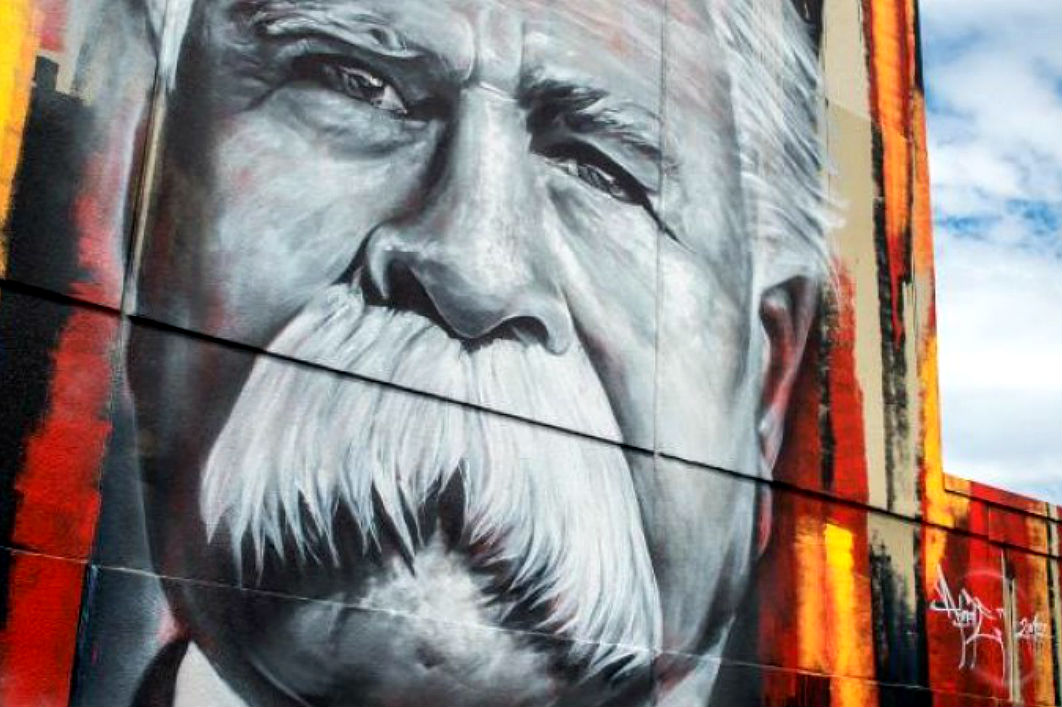Moment of Truth: History and Australia’s future
By Mark McKenna | Quarterly Essay | $24.95 | 144 pages
The Uluru Statement, truth-telling and the Treaty are all vitally important for Aboriginal and Torres Strait Islander people, but perhaps even more so for those non-Indigenous Australians who have yet to recognise the nature of Australia’s past. As the novelist Catherine Cole writes in her memoir, The Poet Who Forgot (2008), reflecting on the past plays a vital role in shaping how we see ourselves: “It anchors our identities in some temporal way, defining us, allowing us to chart our progress through life as a series of remembered events, like monuments scratched into the parchment of an old map… The past must be relived, remembered, mourned, cut adrift, tethered on a long thread. Then we might pull it back at will to interrogate.” The same is true of Australia as a nation.
In this timely and beautifully written essay, the historian Mark McKenna takes us on a journey through a history that is hidden in plain sight, in the process highlighting the erasure of much of the Aboriginal and Torres Strait Islander presence in Australia. He draws us in from the first page: we can imagine ourselves standing with him in Canberra, but this time — if we are non-Indigenous Australians — there’s a difference, for he helps us see it for the first time from the perspective of Aboriginal people past and present.
McKenna’s section, “Listening to Indigenous Voices,” brings to the forefront the voices of Aboriginal people who as young people saw for themselves horrors of frontier violence. Imagine having witnessed the brutal torture and death of your relatives only to be told that this country was peacefully settled. It is a poignant reminder that such violence is within living memory, not hundreds of years ago, despite what many non-Indigenous people might prefer to believe. Drawing on Lyndall Ryan’s interactive map pinpointing massacre sites across Australia, McKenna points out that the evidence of violence is “at once overwhelming and undeniable.”
The Howard government’s labelling of any inclusion of Aboriginal and Torres Strait Islander perspectives on colonial violence as “black armband” irreparably damaged the ability of many non-Indigenous Australians to conceive of anything other than a heroic past in which their ancestors were courageous bearers of civilisation in a barren land. “The past matters because we give it life,” McKenna writes. “Until we listen to the voices of Indigenous Australians, we will continue to see the history of the country we share through European eyes.”
He traces the controversy over the commemoration of James Cook and other colonial figures, which has again made headlines in recent months. The vitriol is swift following any suggestion that we rethink the truths that colonial monuments seem to represent. As McKenna notes, “Old verities die hard in this country.” He points out the hypocrisy behind the notion of “discovery,” especially as it relates to Indigenous people in Australia, writing that “Cook had no more discovered Australia than Bennelong had discovered England when he accompanied Governor Arthur Phillip to London in 1792.”
This is not about rewriting history — it is about telling the truth. Without truth-telling, McKenna writes, Australia will keep circling “the same old polarities: invasion or settlement? Frontier wars or occasional skirmishes? 26 January: a day for celebration or a day of mourning?” We need to find a way forward by “facing up to the true history of the country’s foundation without condemning European Australia as irredeemable or dismissing the violence of dispossession.”
It should be made clearer, though, that colonial violence in Australia is not over and done with. The fact that Indigenous people are still under threat is demonstrated by high rates of imprisonment and deaths in custody, and the unpunished deaths of Indigenous people. This is reality for many Indigenous people, yet we are often told by those who hold the highest office in the country that we should be proud of Australia and its history.
In his final section McKenna imagines a more unified future for Indigenous and non-Indigenous Australians. Poignantly, he highlights the possibilities we could achieve as a nation if non-Indigenous people were open to “hearing” the truth. We need, he says, to follow the spirit of Makarrata, “healing and coming together after a struggle.” As the world changes, so must Australia. “Pitting white against black, shame against pride, and one people’s history against another’s has had its day.” Change is certainly inevitable. What that change will look like has yet to be imagined. Truth-telling is certainly a start. As McKenna says, speaking for non-Indigenous people, “this is the least we can do.” ●




